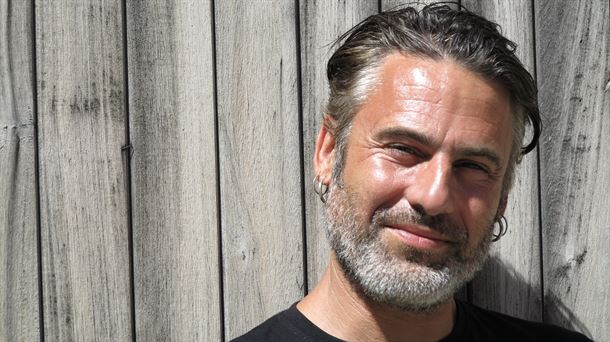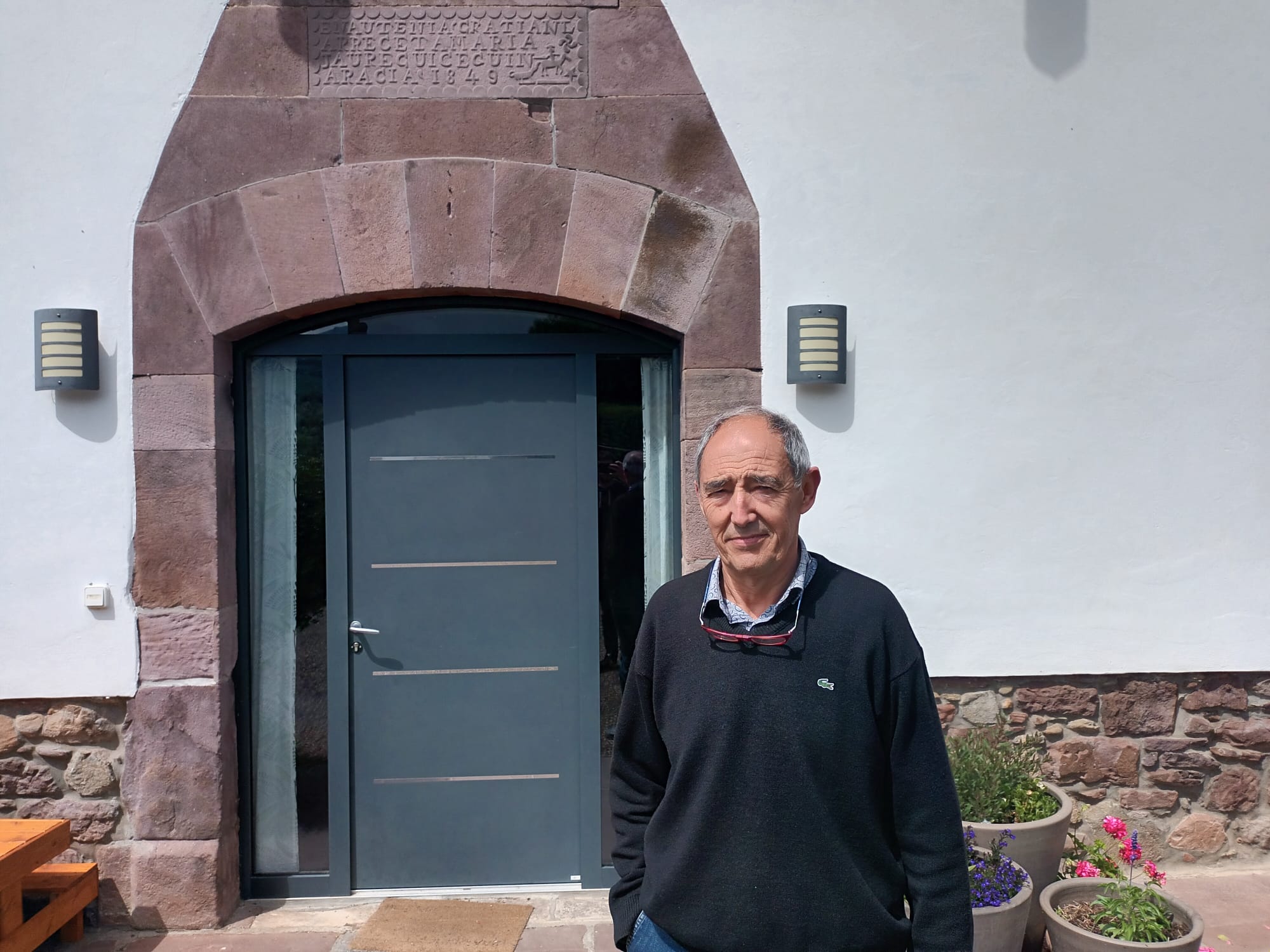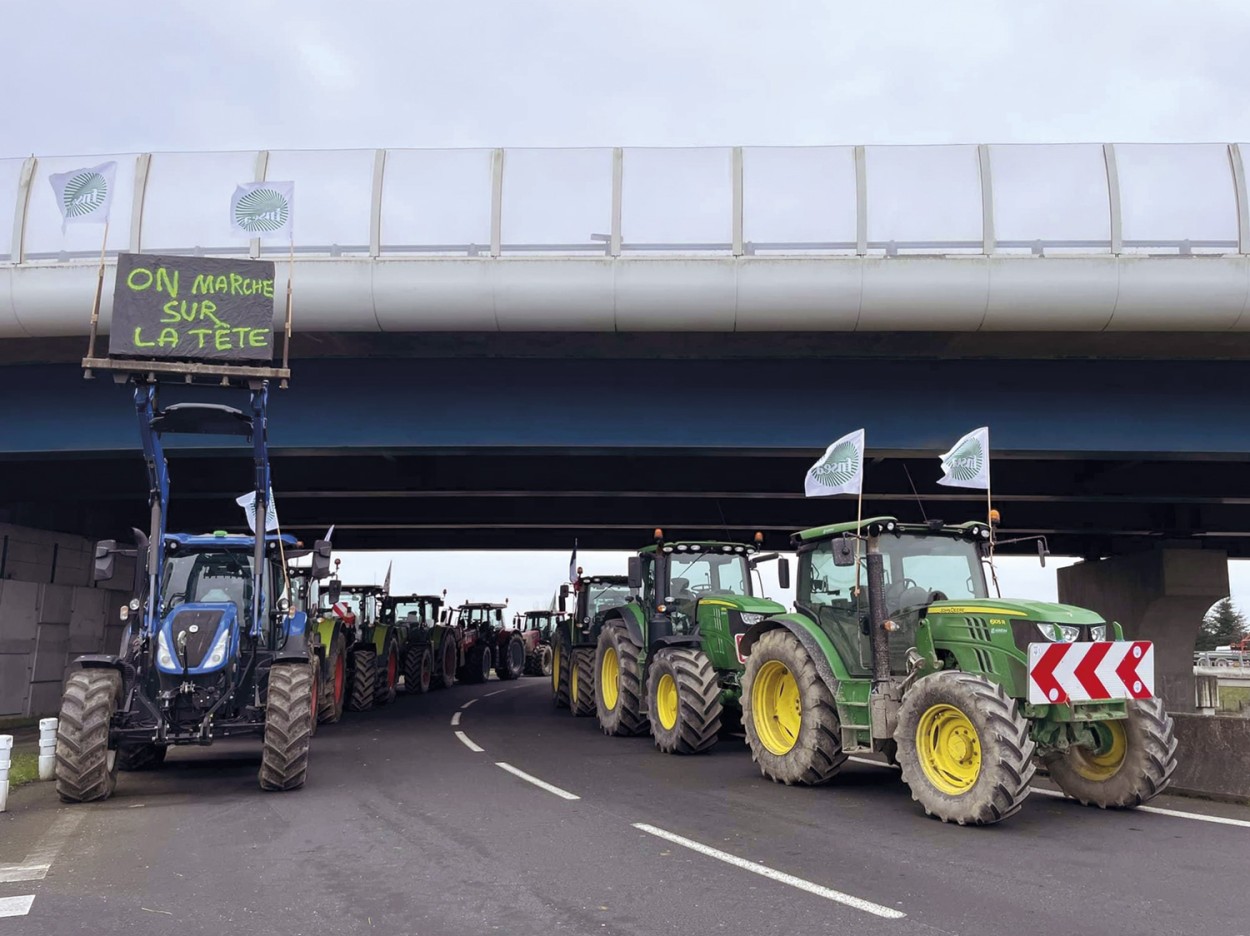In the face of the new negotiations, the tractor protests return to the Region of Pamplona
- Tractors have returned to the roads of Navarra on Wednesday and Thursday, especially in the Region of Pamplona. This Thursday, too, the farmers of the February 6 (O6) movement, who started meeting in Whatsapp, will make a demonstration in Pamplona at 18:00 from the Antoniuti Park. Trade unions do not specify whether or not they will be present.

The tractors have travelled in the last days the entrances and exits of the Region of Pamplona, as well as other points of Navarra such as Tafalla, Tierra Estella and Ribera. Farmers and farmers met last Friday with representatives of the Government of Navarra and they will meet again this Friday.
The meeting was attended by UAGN, the food cooperative UCAN, EHNE, the food industry association Alinar and the farmers of the O6 platform. Last Friday, a good attitude was observed in government representatives, but farmers' representatives pointed out that the issues remained in the air and must be further clarified.
They then announced that tractors would leave the capital as goodwill gestures, but confirmed that, if more concrete measures were not observed, they would return to capital and roads. And they come back these days to give strength to Thursday's demonstration and keep up the pressure for tomorrow's meeting.
Complexity of concrete measures
Taxation is perhaps one of the areas in which the Government of Navarra can take concrete measures, but not quickly or temporarily. The Foral Government can encourage fiscal measures to favour the rural and agricultural world, but Counsellor José María Aierdi has pointed out that to do so we must amend the laws, and that must be done by the Foral Parliament.
At the meeting on Friday, it was asked to be equated with the fiscal measures of Spanish farmers. At the moment, they agree that these amendments will be promoted by Parliament and will enter into force in 2025, retroactively by 2024.
In any case, farmers also have VAT applications, which fall within the competence of the Spanish Government. The alleviation of bureaucracy is another of the strong demands of farmers, but that must be negotiated in Brussels. That is why Aierdi announced that at the Friday meeting they would have to achieve as much consensus as possible on the measures they are in doubt to take to the meeting that the communities and the Spanish Government will hold next Monday.
Green grape harvest or increased irrigation
They will also talk about other concrete measures, which may sometimes take action, but on other occasions, in addition to the complicated issues, the fund does not depend on any government. For example, growers demand further steps in the green grape harvest. This means not collecting part of the harvest and receiving a subsidy for it. Farmers are demanding higher and more effective subsidies. In this area, for example, more steps can be negotiated.
But water-related ones are more complex. They call for a speedy construction of the Second Section of the Canal of Navarra, whose works begin this year, and for the irrigation plans to be revised, but, once completed, no government can decide whether that canal will have enough water if not. From the point of view of agroecology and environmental care, for example, it does not look well, let alone in these times of water scarcity, to boost crops that need a lot of water in the often dry harvesting areas, such as maize.
There are also environmental and health standards that are not easy to make more flexible. The farmers of the O6 movement are calling on the European institutions, be they from Brussels, to relax these rules because otherwise they cannot compete with imported products, because they do not have such strict control in their territories.
There are very complex issues at the negotiating table, there are important consensus among farmers, but there are also profound differences. In the latest issue of ARGIA we have highlighted some of the keys to the issue by Jenofa Berhokoirigoin, and it is specified that all these problems have the same basis: “An agricultural production model started the day after World War II.”
"Isiltasuna oztopo eta elkartasuna lagun, egungo mundu gordina" kontatzeko erronkari lotu da Axut! antzerki konpainia.
Frantsesenia lizeoa, 70 urtez Ipar Euskal Herria barnealdeko laborarien formatzen.












